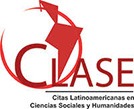The limits of “opening ports to friendly nations”
regulation of maritime trade and the defense of the interests of the Luso-Brazilian merchant navy (1808-1816)
Keywords:
Joanino Government, Opening Ports to Friendly Nations, Cabotage Trade, Maritime TradeAbstract
By privileging the “opening of ports” as a turning point in Brazilian history, part of the studies on the Joanino period relegated the provisions adopted by the Prince Regent in the years following his transfer to Brazil to a second plane. Nevertheless, the study of the regulation of mercantile shipping undertaken between the years of 1808 and 1816 reveals the complex and nuanced set of interests that permeated the political and economic relations between the traders based in the main ports of Portuguese America. From the examination of the guidelines adopted after the signing of the Carta Régia of 1808, we will analyze in this article the measures embraced by the Joanino government in the context of the intense disputes between Luso-Brazilian and foreigners over the control of maritime trade and the circulation of goods in America.















